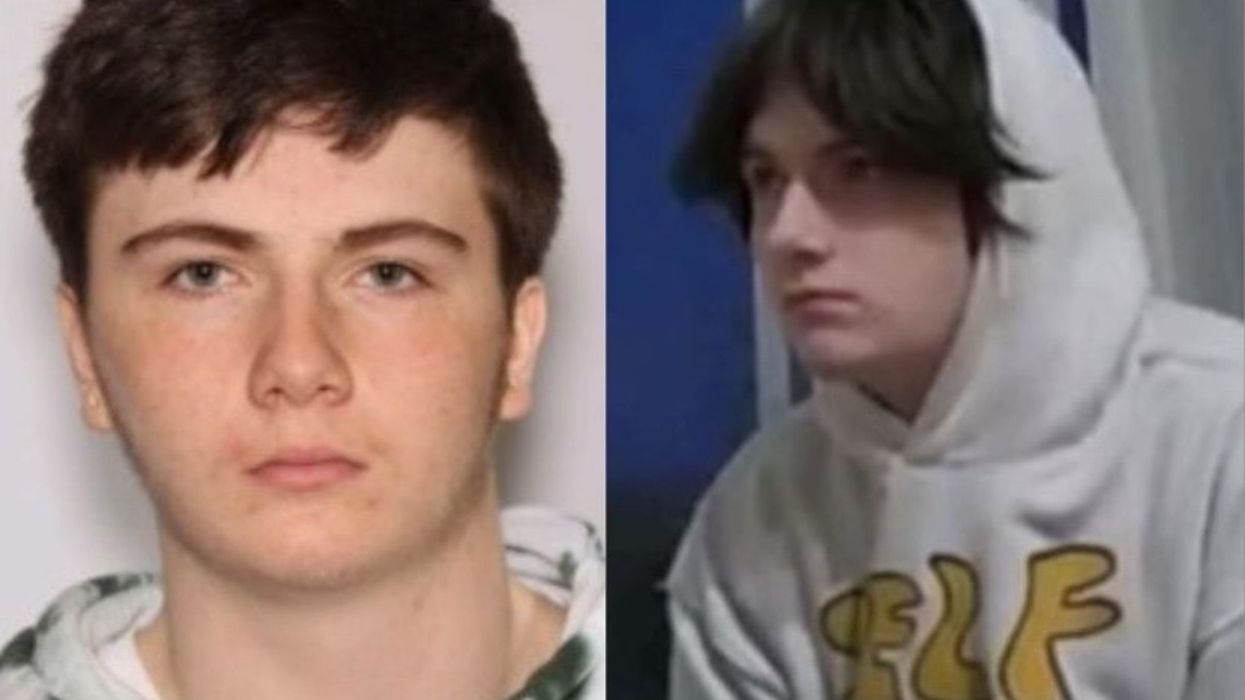'That's how u get a bomb squad': Teen admits to terrifying swatting crusade

Photos of Brayden Grace from a May 2024 FBI Most Wanted bulletin. Photo: FBI
A 19-year-old Ohio man who set up an online group chat and wrote scripts for Purgatory, a nihilistic swatting gang that targeted a casino, airport, trailer park and schools, has pleaded guilty in federal court.
Brayden Grace of Columbus, Ohio, appeared before Judge Julie Rebecca Rubin in Baltimore on Wednesday and pleaded guilty to conspiracy, cyberstalking, threat to damage and destroy by means of fire and other charges.
Grace was responsible for developing swatting scripts for a two-month coordinated campaign that sought to sow fear and tie up law enforcement resources across the U.S. in December 2023 and January 2024, according to prosecutors.
Grace's sentencing was scheduled for Aug. 14.
According to the indictment against Grace and two co-defendants, the swatting incidents, which involved members contacting law enforcement through masked phone numbers to solicit armed responses, included threats to burn down a trailer park in Alabama, shoot a teacher and students at a Delaware high school, and bombing and shooting threats against a casino in Columbus, Ohio and an airport in Albany, N.Y.
Purgatory is described by Marc-André Argentino, a leading scholar of nihilistic violent extremism, as a “subset of 764,” a sprawling global online network committed to extreme acts of sadism.
Argentino commented in an analysis published in February that the investigation “exposes a deeply concerning evolution of cyber-enabled criminal behavior.”
He described Purgatory as “a multifaceted criminal enterprise that seamlessly blends digital tactics — such as swatting, cyberstalking, doxxing, and online grooming — with overt acts of violence and exploitation in the real world.”
The government alleges that Grace boasted in an Instagram chat in December 2023: “My swat scrips are crazy … That’s how u get like a bomb squad and a few swat trucks.”
Three days later, he started a group chat on the social media platform Telegram called “Purgatory GC.”
Court documents describe Grace as an instigator of the coordinated, multi-state swatting campaign. The indictment alleges that he posted identifying information about a former associate in Alabama, along with the address of the Hollywood Casino in Columbus in January 2024. In the same month, Grace allegedly sent a private message to co-defendant Owen Jarboe with a Google map for a Massachusetts high school, writing, “Ayo we got a school to do tmr.”
After Grace posted the address of the casino, the indictment alleges, two unnamed co-conspirators who were minors called the Columbus Police Department threatening to blow up the casino and to “start shooting” and “kill everyone here,” unless authorities delivered $100,000 in cash and a helicopter.
Prosecutors pointed to a tangle of motivations behind the Purgatory members’ coordinated campaign. A statement of facts filed in Grace's case on Wednesday said pro-Purgatory members “engaged in swatting and doxxing to strike out at perceived rivals, gain online notoriety, attempt to make money, and for their own enjoyment.
“They did so to cause armed police responses to locations with the intent to threaten, intimidate, and harass individuals and entities,” prosecutors added.
The larger 764 network has caused increasing alarm for global law enforcement, with the FBI deeming it a “tier one” terrorism threat and the Royal Canadian Mounted Police classifying it as an “ideologically motivated violent extremist” entity.
Court documents indicate the Purgatory members are dealing with significant mental health issues.
One of Grace’s co-defendants, Evan Strauss, pleaded guilty to cyberstalking and child pornography in a separate case.
Strauss was originally set to be sentenced in May, but his lawyer asked for a delay based on the discovery that Strauss has “autism” and was diagnosed “with significantly low IQ.” The lawyer is seeking to have her client examined by a forensic psychologist for testing and analysis that could potentially be used as mitigating evidence.
Grace also has a history of mental health challenges. According to a local news report, he was the subject of a “missing children” report issued by the Columbus Police Department in 2021, when, as a 15-year-old, he hopped a fence from a juvenile detention facility where he was being treated for “mental health issues” and “suicidal thoughts.”
In May 2024, Grace was added to the FBI’s Most Wanted List. A federal magistrate judge in Ohio ordered him into pretrial detention after finding that Grace had evaded law enforcement for several weeks prior to his arrest.
“Defendant has no place to reside if released, and has serious unaddressed mental health and substance abuse issues,” Magistrate Judge Kimberly A. Jolson wrote. “As charged, defendant engaged in computer/telephonic crimes that are difficult to monitor. He has been convicted of these types of crimes in the past, and his criminal conduct is escalating.”
NOW READ: Trump's reckoning is the final chapter of a horrifying old movie


